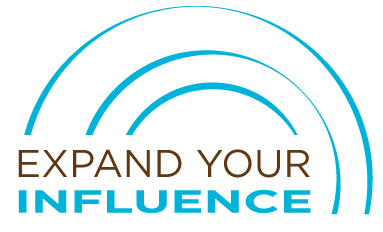Here is why I’m thinking of Virginia Woolf (that’s a painting of her by Roger Fry, by the way): today, while I was running, a driver
 honked at me and flashed me a look of contempt. (What, you don’t get the connection yet?) It was an angry honk, a “get off the road because it belongs to me and my car” honk. That I am a cautious runner and I follow all of the rules about running against traffic and never playing chicken with cars didn’t matter. I was in his way. (Even though I wasn’t.)
honked at me and flashed me a look of contempt. (What, you don’t get the connection yet?) It was an angry honk, a “get off the road because it belongs to me and my car” honk. That I am a cautious runner and I follow all of the rules about running against traffic and never playing chicken with cars didn’t matter. I was in his way. (Even though I wasn’t.)So maybe this dude doesn’t like people with pink iPods. Maybe he hates women. Maybe he thinks active people are stupid. I could choose to be indignant about any of that. Because I like to get indignant.
Except the honk probably didn’t have that much to do with me. So just being angry on my own behalf isn’t all that constructive. What is constructive: tracing Mr. honk-honk’s actions to the bigger problem, which is that in Cincinnati (where I live), roads are for cars, not people. That attitude comes from our history, our geography, our base of industry, the way our neighborhoods have developed, our culture, and the fact that people here won’t stop asking you where you went to high school.
So, the best thing I could do with my anger is to try to pour energy into fixing that problem—the problem of roads being for cars, not people.
But honestly? It’s not my fight. I don’t care enough. You’d think I would, because I hit the streets running about 175 times a year, and have been for 17 years. I support the groups who are trying to make roads for people, voting for ordinances and initiatives surrounding this. But it’s not going to get much of my energy. I’m not going to lead the fight. So for now, I’m better off letting my indignation go.
The Layer of Un-Victimhood
This article isn’t about Cincinnati roads at all. It’s about anger, and how when you tap into that underlying layer of anger where you’re not a victim anymore, it’s extremely powerful. But if you can’t get to that layer (or you don’t care that much about that layer), you’re better off letting it go.
So, back to Virginia: first, she got mad that she couldn’t even walk on the grass where men walked at Cambridge (she got shooed away, just like I got honked at). Then, she couldn’t go into the library where men went. Then, she got served crappy soup at the women’s college at Cambridge where she was speaking (while the men were dining on roasts and such). All of it made her angry. But the problem, she realized, was that women were poor. So she wrote a brilliant essay (well, I think it’s brilliant), where she took on that problem—the base problem of women being poor and the lack of opportunities to not be poor.
When you’re a service provider, you better be flaming hot mad about something—some established norm or way of thinking or problem that you just have to change.You just have to.
Here’s the trick though: that anger can’t really be all about you. Your business can’t just be one long vent about the problem and the pain, as you see it. It’s about you in the sense that you are you, and you are the only one living your life. But it’s way bigger than you. The crappy thing you’re mad about is a symptom of the problem you need to help solve. And if you have a business dedicated to fixing the crappy thing, you’d better be more than just a supporter (like me with the pedestrian initiatives). You’d better be a leader. But I don’t think you can be a leader unless you are ready to break out a light saber and hold your ground on why the thing you’re furious about has to change.
This is why I always ask clients, “What makes you really, really mad?” It’s okay if they want to vent. I know what I’m looking for, and I know it when I hear it: the anger that has the layer under it. The indignant thoughts that are connected to a much bigger thing. That’s where the solutions, the offerings, the packages, and the innovative ways of doing things come from.
Virginia Woolf came up with a solution: women need a room of their own and 500 pounds of a year. She didn’t stop fighting for it until she succumbed to the Thames.
So . . . where is your indignation leading you? And more importantly, what’s your solution?
P.S. Have you registered for Expand Your Influence yet? It starts Monday, March 19, and runs through Friday. It’s a FREE
 virtual conference all about turning big ideas into brand extensions (like books, eBooks, videos, TV shows, etc.), and I created it to help business owners figure out how to take the next step to get their big ideas into the world. I am interviewing a range of experts who have successfully extended their brands (or who help others do it): designers Amy Butler and Angelo Surmelis, authors Garret Kramer, Peter Bowerman, Meagan Francis, Kate Hanley, and Jeff Goins, business coach Darla LeDoux, and literary agent Joy Tutela. So how much does it cost? First, let me tell you about the special financing: zero money down, and zero money ever. That’s right, it’s free to listen live! You can purchase an upgrade, where you get tons of fantastic bonuses. But I’m thrilled to extend you the opportunity to call in and listen to expert interviews without spending a dime.
virtual conference all about turning big ideas into brand extensions (like books, eBooks, videos, TV shows, etc.), and I created it to help business owners figure out how to take the next step to get their big ideas into the world. I am interviewing a range of experts who have successfully extended their brands (or who help others do it): designers Amy Butler and Angelo Surmelis, authors Garret Kramer, Peter Bowerman, Meagan Francis, Kate Hanley, and Jeff Goins, business coach Darla LeDoux, and literary agent Joy Tutela. So how much does it cost? First, let me tell you about the special financing: zero money down, and zero money ever. That’s right, it’s free to listen live! You can purchase an upgrade, where you get tons of fantastic bonuses. But I’m thrilled to extend you the opportunity to call in and listen to expert interviews without spending a dime.Register here!
Comments
Posted by In Search of My Bloomsbury | judiketteler.com on 04/26/12 2:21am
[...] and the big questions of life. It was people like Virginia Woolf (yes, I am writing about her again. I can’t help it: she’s taken up real estate in my head this year), and her sister Vanessa (a [...]

